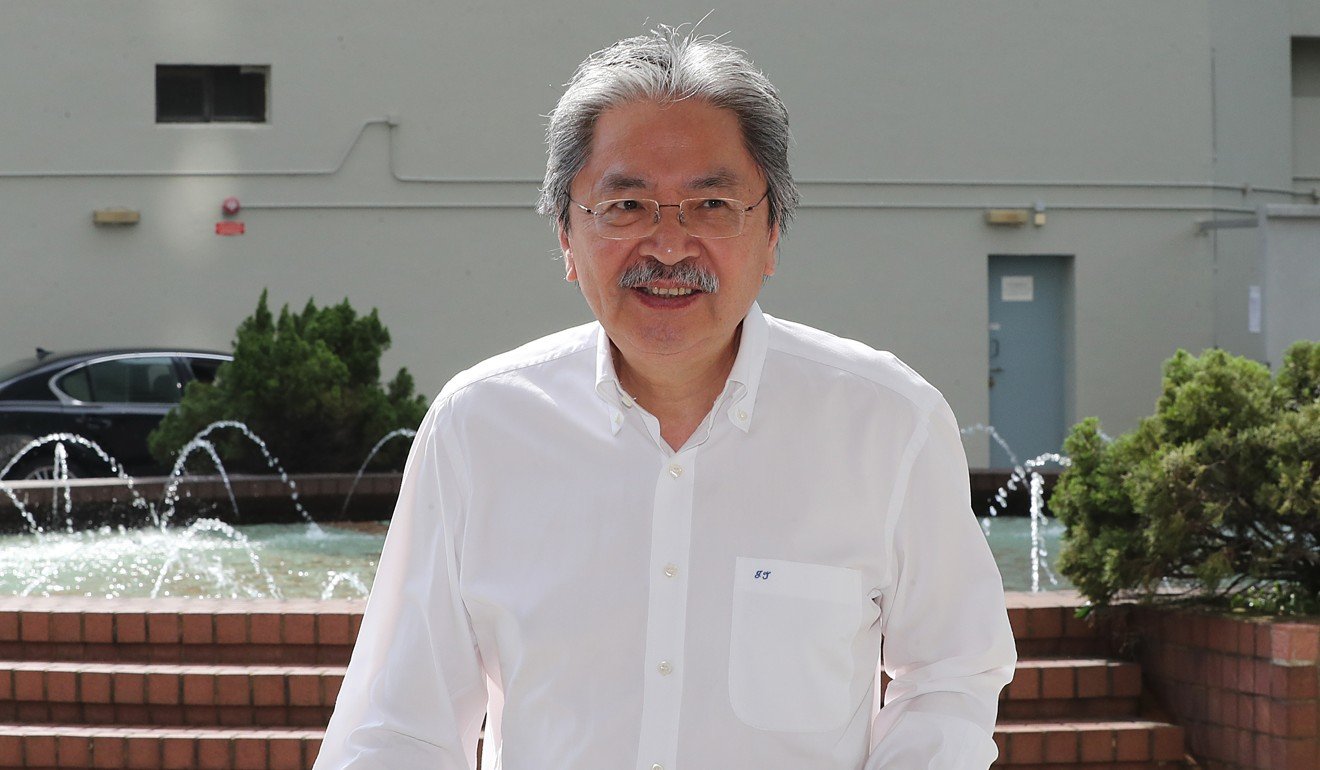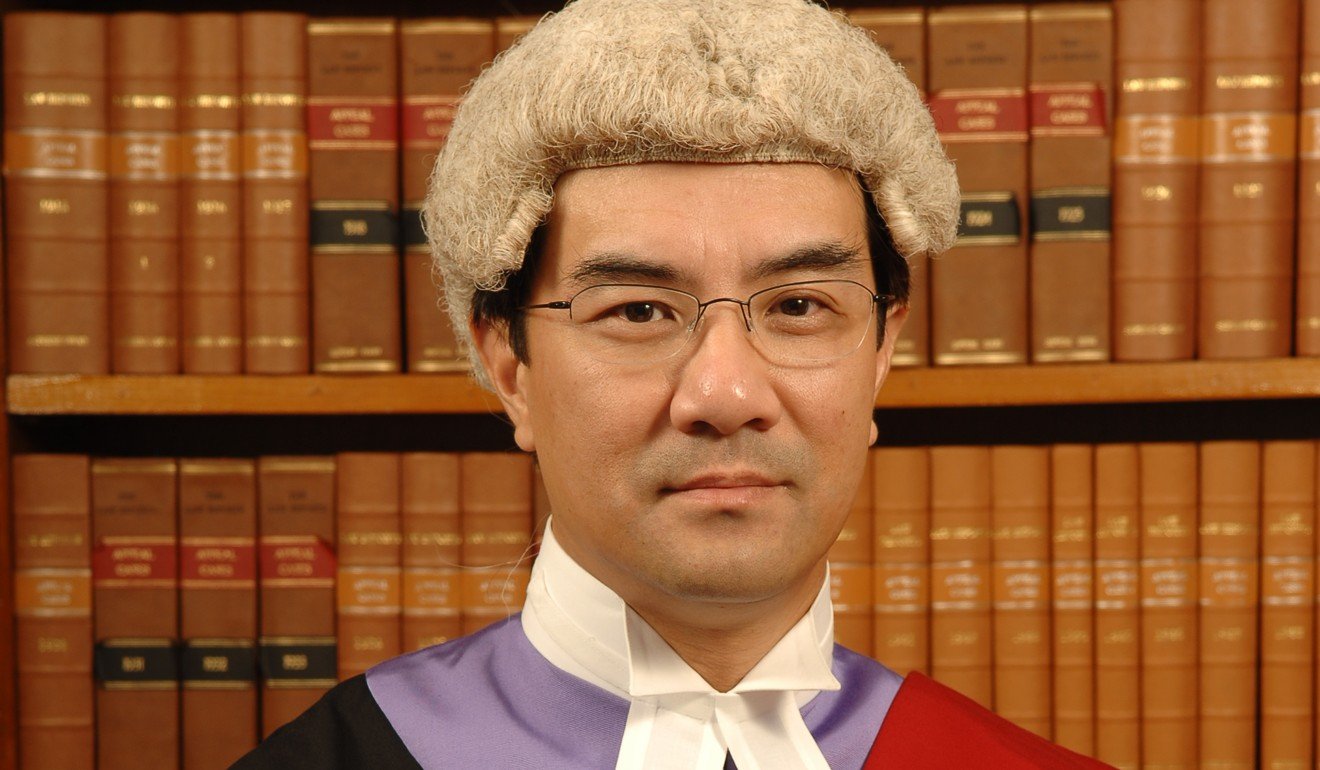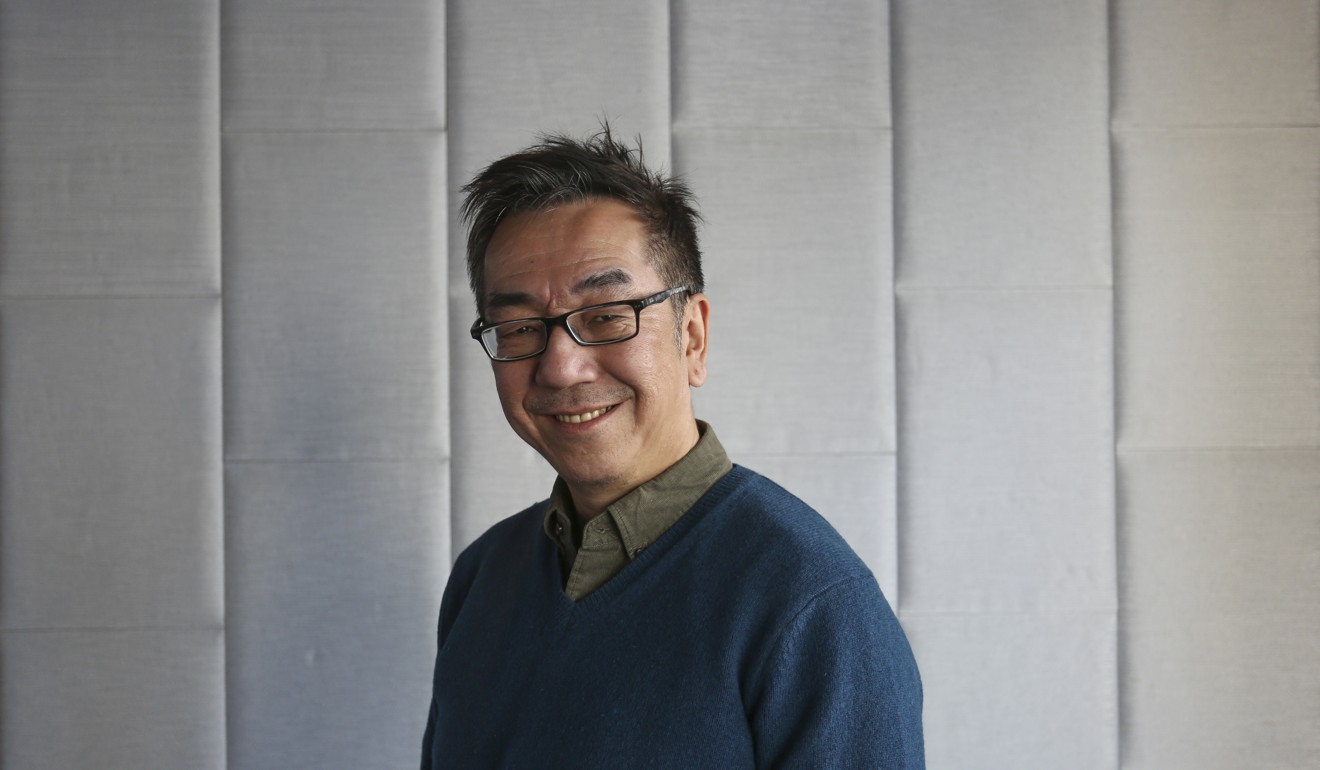
High-profile Hong Kong figures hit out at judge in Donald Tsang bribery trial
Former justice secretary Wong Yan-lung and former financial secretary John Tsang Chun-wah say they were not part of a public relations stunt
An unexpected court row raged on Tuesday as prominent figures hit back at a judge who had denounced the appearance of high-profile personalities at the trial of former Hong Kong leader Donald Tsang Yam-kuen as an “undesirable” public relations stunt.
Tsang himself broke his silence to express gratitude to his supporters, counting among them former ministers and bureaucrats.
One of them, Wong Yan-lung, issued a statement challenging Mr Justice Andrew Chan Hing-wai’s observation as being “factually incorrect”. Wong was secretary for justice during Tsang’s term as chief executive between 2005 and 2012.

A day after Donald Tsang was also ordered to pay a third of the government’s HK$13.7 million (US$1.76 million) legal cost for his bribery trial, his spokesman said: “Amid the difficulties over the past few years, Donald Tsang would like to thank members of the public and friends who have expressed heartfelt care and support.”
In his judgment, Chan criticised what he deemed to be the public relations tactics used during Tsang’s trial in November last year.
High Court judge slams use of ‘undesirable’ public relations tactics during Donald Tsang bribery hearing
The judge said he became aware during the trial – Tsang’s second – that a public relations firm had been getting prominent figures, including Wong and John Tsang, to sit in an area reserved for the former leader’s family and friends. The judge also noted that in England and Wales, there were laws to bar jury tampering.
At the time, Tsang stood accused of being “favourably disposed” to local radio station Wave Media between 2010 and 2012, after accepting HK$3.8 million worth of renovation services for a Shenzhen penthouse from Bill Wong Cho-bau, a majority shareholder of the broadcaster. The property, which he rented as his temporary retirement home, was owned by Wong. The jury was unable to reach a verdict.

Y Communications was involved, but both John Tsang and Wong Yan-lung were among those who denied being arranged to lend their support to Donald Tsang during the court proceedings.
Others spotted included former Democratic Party legislator Albert Ho Chun-yan, who chatted with the former chief executive outside the courtroom, while Gary Chan Hak-kan, a lawmaker from the Democratic Alliance for the Betterment and Progress of Hong Kong, once gave Tsang a hug.
There was also a train of Catholic priests for devout believer Tsang. Vicar general of the Hong Kong Catholic Diocese Reverend Dominic Chan Chi-ming and Reverend Stephen Chow Sau-yan, a senior Jesuit, were on the list.
Chip Tsao, a radio host and friend of Tsang, also turned up.
Often, the guests would arrive individually, before they gathered with Tsang and his family in a meeting room set aside for him and his legal team outside courtroom No 5 of the High Court. They would part as Tsang went into the dock while they sat next to the family in the reserved area of the public gallery – a move that a senior counsel told the Post contributed to a “plot thickens” mystery.

But in that trial, Tsang was barred from calling anyone to testify about his good deeds as he was found guilty of misconduct in public office in an earlier trial in February. He had to stand the second trial because the jury failed to return a verdict on the bribery charge in the first one.
Chan, in his judgment on Tuesday, said by inviting prominent figures to take to the public gallery – the purpose of which was to impress the jury, he assumed – it was as if Tsang was trying to achieve the same purpose “through the back door”.
He said despite a lack of “direct evidence”, it would be “an affront to common sense” that Tsang had no involvement in the public relations effort. He feared it might even influence the jurors.
But on Wednesday, Wong released a statement to clear the air. He said he had paid Tsang a visit on October 26, where he met the former chief executive and his family before joining them in court in the reserved area, but he was only there to offer Tsang and his wife “encouragement and moral support”. He had also paid Tsang a visit during the first trial, he said.
“Neither of my two court attendances was arranged by any public relations firm or consultant,” he wrote on Wednesday.
The former justice minister cited a part of the judgment which said he was led to the court by the firm. “This paragraph is factually inaccurate as it relates to me,” he insisted.
Former Hong Kong leader Donald Tsang avoids conviction on bribery charge – for now – as jury unable to reach verdict
Meanwhile, John Tsang said he had attended the hearing solely because he cared for his friend.
The two met when John Tsang was still in the United States, while Donald Tsang was there for his postgraduate study.
The former financial chief added that when someone was in trouble, a friend would not shy from lending a hand. The public would recognise this gesture as a “universal value”, he added.
Radio host Chip Tsao, who also visited Tsang, told the Post on Tuesday that he had done so in his private capacity.
Meanwhile, legal experts and practitioners contacted by the Post on Wednesday had mixed views about Justice Chan’s critical comments.
Grenville Cross, former director of public prosecution, said the judge might have referred to Britain’s Criminal Justice Act of 2003, of which section 44 allows the prosecution to apply to a judge for a trial to be conducted without a jury when there is a danger of jury tampering.
Cross suggested the act was irrelevant in the case of Donald Tsang.
“This type of jury tampering is concerned with potential threats to jurors before trial, and allows a jury to be dispensed with in favour of a trial by judge alone. Therefore, it is not really relevant to what apparently happened in Tsang’s trial, which, according to the judge, involved subliminal efforts to influence jurors in a trial that was already in progress,” Cross said.
“If a PR firm deliberately uses subliminal techniques in the courtroom itself with an intention to try to influence the outcome of the trial, this crosses the line and is potentially prosecutable.”
Barrister Ronny Tong Ka-wah, also an Executive Councillor, said of the need to enact laws to ban jury tampering: “It is already an offence to pervert the course of justice.”
Hong Kong judge orders former city leader Donald Tsang to pay HK$4.6 million in court costs
He did not think the judge had meant to target Tsang. “My reading of the judgment is that the judge wishes to raise the issue, not to condemn either Donald Tsang or people turning up in his support.”
Kacee Ting Wong, a barrister and vice-chairman of Hong Kong Legal Exchange Foundation, shared similar views. suggesting the jury ordinance should be updated to deal with tampering, adding that the judge’s allegation could be ground for appeal.
“At the moment, I would say the judge’s comment is fairly fair, because, if there were direct evidence in this regard, the judge would refer his judgment to police and the Department of Justice to make further investigation,” he said.
But legislator Paul Tse Wai-chun, also a solicitor, said: “There is no sufficient basis to say that there was a deliberate attempt to tamper with the jury in this case or indeed that such practice is prevalent or on a rising trend.
“Hence, I think it is premature to talk about making laws to ban jury tampering.”
But he added: “I tend to take the view that [Justice Chan’s] conclusion is somewhat on shaky grounds even though the judge should have been in a better position to judge the overall circumstances of the matter.”
University of Hong Kong law scholar Johannes Chan Man-mun called Chan’s comment “unfair”, “unwarranted” and “totally unsubstantiated”, saying it was not backed by evidence.
“Equality before the law means that even the ex-chief executive is entitled to an open and fair trial, and the members of the public, including his friends, colleagues and supporters, have a right to be present at the criminal trial,” Chan said.
He added that if the judge found their presence to be inappropriate, he could have told the jury not to be affected by the famed individuals attending court or even discharged the panel.
Additional reporting by Ng Kang-chung

